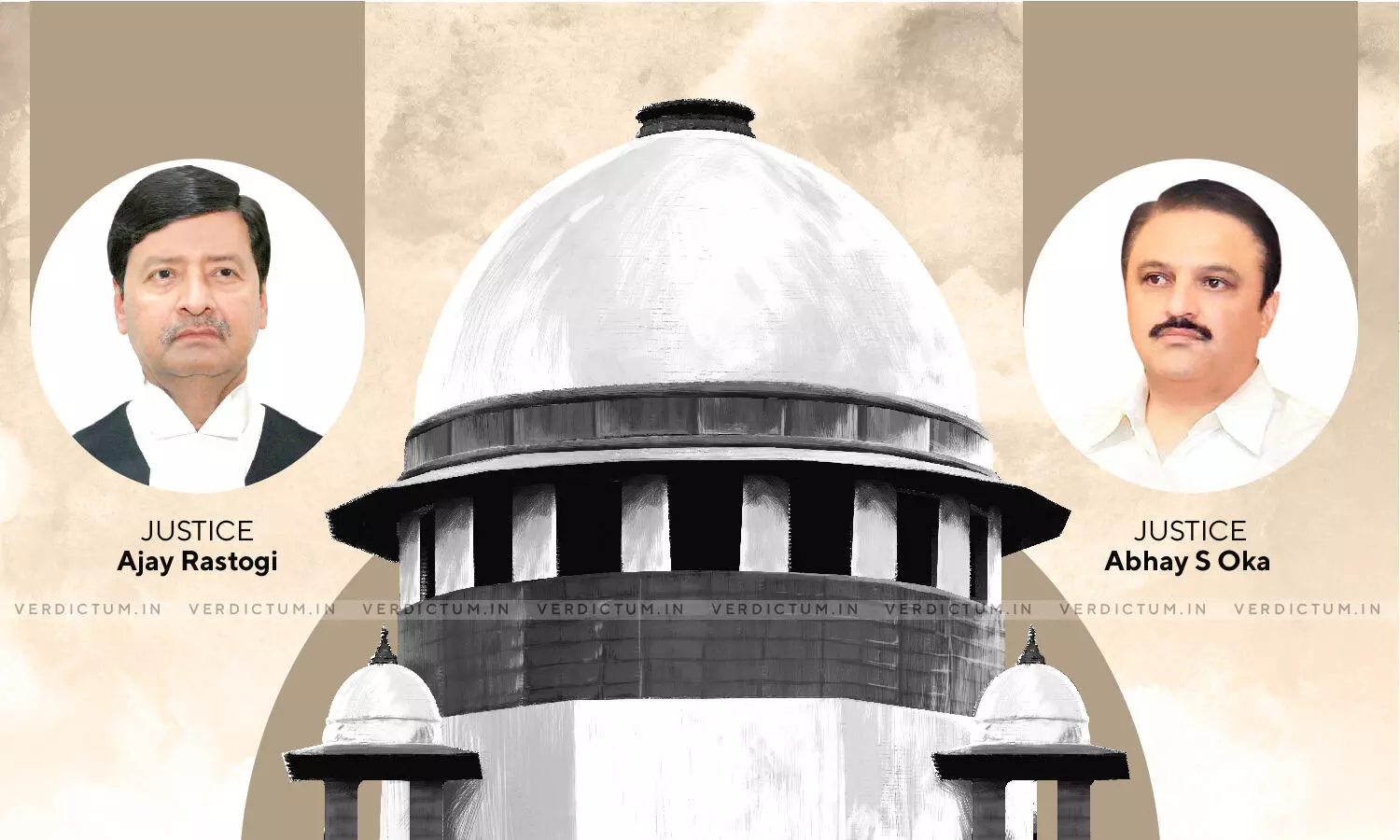
Writ Courts Cannot Direct A Parent To Leave India And Go Abroad, Would Violate Right To Privacy - SC In A Custody Dispute Case
 |
|The Supreme Court Bench comprising of Justice Ajay Rastogi and Justice Abhay S. Oka recently heard a matter regarding the custody of a minor male child. An issue that was faced in this matter by the apex court was whether the court can direct the parent to move from one place to another and whether the High Court was justified in doing so.
The Apex Court was considering an appeal filed by a wife against a judgment of a Single Judge of the Punjab and Haryana High Court in a petition for habeas corpus filed by the husband seeking custody of a minor child. The Husband and Wife were married in the USA and had a child there, which made the child a citizen of the United States by birth. The child was diagnosed with a disease and required urgent surgery. It was mutually decided that child be treated in India. Being a citizen of the United States, the consent for one legal guardian to travel with the child was given and it was mutually consented upon that the mother would travel with the child. It was recorded in the consent document that the child would go to India for the period between 5th Feb 2019 to 26th Sept 2019 and any further change would be discussed and consented to by both the parents.
It was the case of the husband that the wife has illegally detained the child in India and has not allowed the child to return to the United States and thus the husband filed a petition before the circuit court of the USA seeking primary care, control, and custody of the minor. The Circuit Court gave an interim order granting the primary care, control, and custody to the husband. The husband then filed a petition of habeas corpus before the Punjab and Haryana High Court stating that despite the order of the US Court, the wife continued to detain the minor child in India and prayed for a direction to the State of Haryana to secure the release of the minor child. The High Court had allowed the Writ Petition of the husband.
It was argued before the Supreme Court that the legal rights of the mother should be considered as she is the primary caregiver. The welfare principle should also be considered as it gives effect to balancing the interests of all the family members. A question that was raised before the Supreme Court was whether the High Court was justified in passing an order directing the wife to return to the United States along with the minor on or before a particular date.
The Apex Court in this regard observed that, "The issue of custody of a minor, whether in a petition seeking habeas corpus or in a custody petition, has to be decided on the touchstone of the principle that the welfare of a minor is of paramount consideration. The Courts, in such proceedings, cannot decide where the parents should reside as it will affect the right to privacy of the parents. We may note here that a writ Court while dealing with the issue of habeas corpus cannot direct a parent to leave India and to go abroad with the child. If such orders are passed against the wishes of a parent, it will offend her/his right to privacy. A parent has to be given an option to go abroad with the child. It ultimately depends on the parent concerned to decide and opt for giving a company to the minor child for the sake of the welfare of the child. It will all depend on the priorities of the concerned parent."
The Court gave an option to Appellant No. 1 - Mother of the child to return to USA along with the minor child while holding that she could not be forced to do so.
Further, the Court issued directions for both the parties if Appellant No. 1 chose to go to the USA or continued to stay in India.
Accordingly, the Court disposed of the Appeal.